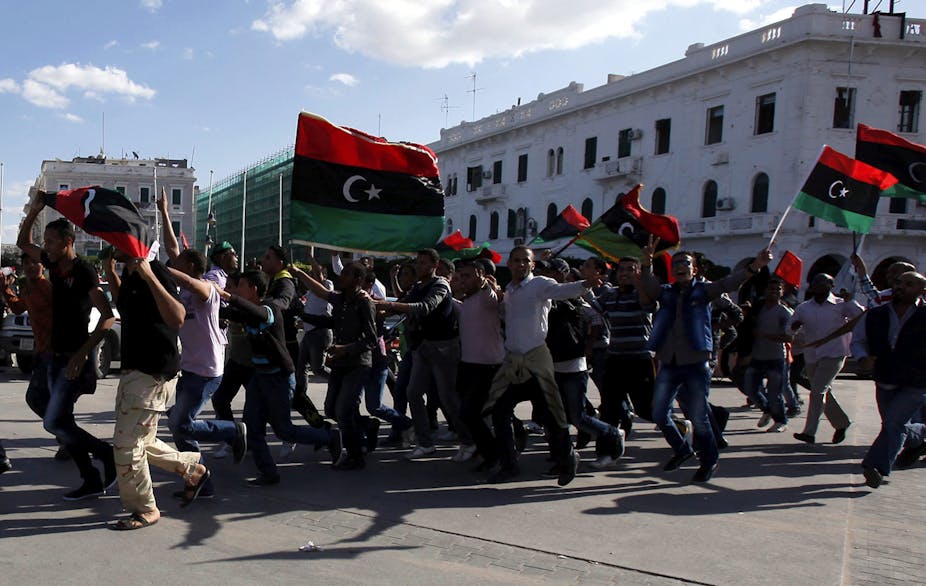The detention of Melinda Taylor in Libya since June 7 has thrown into the spotlight the roles, responsibilities, and risks associated with being a lawyer in the international realm.
Taylor is necessarily protected by the immunities that allow international lawyers to uphold justice in post-conflict settings. These immunities ensure that lawyers like Taylor can assist the administration of justice, for the benefit of all.

The role of a defence lawyer is of fundamental importance to the mission of international criminal law. In a system that is highly emotional, highly symbolic, affected by political machinations, and whose stated primary aim is to “end impunity for perpetrators”, the defence lawyer ensures that fair processes are adhered to.
The rights of the accused – which the defence lawyer is tasked with upholding – regulate the legal system to make sure the trial is fair, impartial, and in accordance with basic human rights. This in turn ensures that convictions are only entered when guilt has been established beyond reasonable doubt, after a rigorous testing of the evidence.
The particular procedural rights afforded to the accused under international law include the right to Counsel, and the right to communicate freely with counsel in confidence. These rights are protected in Article 67 of the ICC Statute; and Article 14 of the International Covenant on Civil and Political Rights, to which Libya is a party. Any continued detention of ICC defence counsel is an attack on these procedural rights.
The heart of international law
Any attack on these procedural rights goes to the heart of the international law mission: to end impunity and bring war criminals to justice, through a strong and fair legal process.
In ensuring that fair trial processes are adhered to, defence lawyers protect both the individual accused, and the entire system of international criminal law.
Trials that are not conducted fairly and appropriately lack legitimacy, and will not resonate with victims and affected communities. In ensuring that trials are fair and consistent with the procedural rights of the accused, defence lawyers protect the legitimacy of the whole system, for the benefit of all.
In Melinda Taylor’s own words, “A defendant has a right to a fair trial. A victim has a right to the truth. There must be a fair trial for a judgement to have traction in local communities. If there is not a fair trial – if there is injustice – it can lead to future conflict.”
Recognising the important function of defence counsel, the International Criminal Court (ICC) created an Office of Public Counsel for the Defence (OPCD), and this is the body that employs Melinda Taylor. The OPCD has a mandate “to represent and protect the rights of the Defence in order to reinforce the equality of arms and to enable a fair trial”.
In prosecuting and defending alleged breaches of international criminal law, lawyers place themselves in delicate, potentially dangerous, situations.
The ICC has jurisdiction over crimes that arise out of situations of conflict, and this means that the Court will often operate in countries with legal systems that are in a state of flux, and in societies that are facing many challenges.
Even though the Hague is a sleepy and safe beachside town in Holland, many international lawyers will have to go into the field in order to conduct investigations, gather evidence, or gain instructions from clients. This is part of the job of a lawyer.
Aware of the particular conditions that international lawyers work in, the drafters of the Statute that governs the ICC included specific protection provisions. These provisions expressly state that staff of the Registry (which, for administrative purposes, includes the OPCD) “shall enjoy the privileges and immunities and facilities necessary for the performance of their functions”.
The 2002 “Agreement on the Privileges and Immunities of the International Criminal Court” ensures that Taylor and all other ICC staff are “immune from personal arrest or detention” and “immune from legal process of any kind in respect of words spoken or written and all acts performed by her in her official capacity”.
Under the United Nations Security Council Resolution 1970, which referred the Libya situation to the ICC, “the Libyan authorities shall cooperate fully with and provide any necessary assistance to the Court”.
It is clear that Taylor was protected by these privileges and immunities, and that she should not have been detained while in the execution of her duties.
Brave and conscientious
For more than a decade, Melinda Taylor has made a strong and real contribution to fair trial processes in international criminal law.
In the days since her detention, anyone observing her case has been made aware of her passion for, and belief in, the importance of her job as a defence lawyer. She is right to believe this: the role of a defence lawyer is of crucial importance to both individual cases, and to the system of international law. We need brave and conscientious people to take on the roles of defence lawyers.
But if international lawyers cannot be assured of their safety, they cannot do their job.
If they cannot do their job, there cannot be a fair trial for the accused. And without guarantees of a fair process, the entire international criminal law mission is thrown into jeopardy.
Melinda Taylor is protected by those immunities and privileges afforded to her under the laws governing the ICC and by the United Nations Resolution that referred the Libya situation to the ICC. Any continued detention is an attack on her, on her role as a defence lawyer, on the process of ensuring a fair trial, and ultimately on the system of international criminal law.
We all hope for Melinda Taylor’s safe and speedy return home.
Comments on this article have been closed to avoid prejudicing negotiations for Melinda Taylor’s release.

